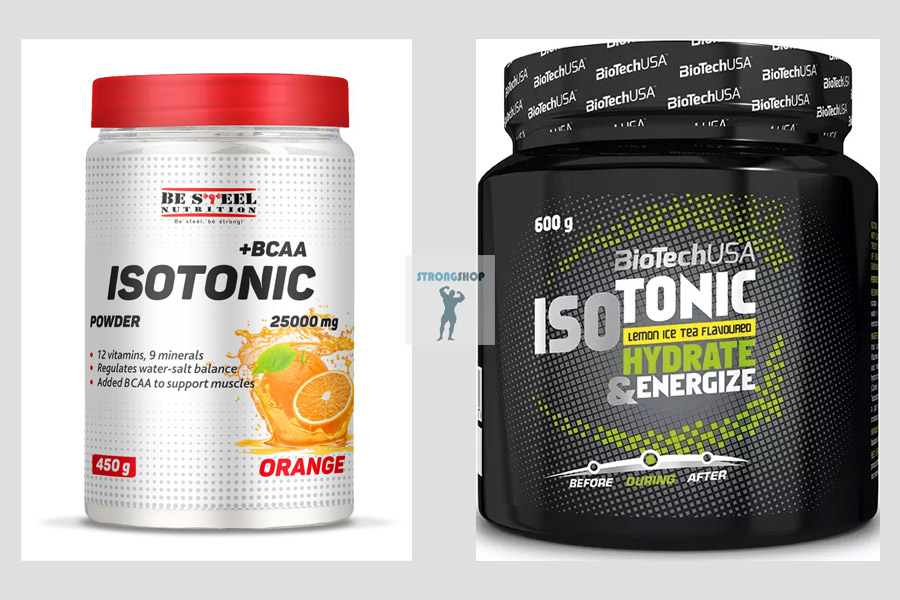An isotonic drink is a specially designed sports beverage aimed at maintaining the body’s water-salt balance during intense physical activity.
Contents
- Benefits of Isotonic Drinks
- Ingredients of Isotonic Drinks
- How to Use an Isotonic Drink
Benefits of Using Isotonic Drinks in Strength Training
Replenishing Electrolytes
Electrolytes are crucial for nerve impulse transmission, muscle contraction, and overall body function.
Isotonic drinks contain an optimal amount of electrolytes for quick replenishment, often referred to as electrolyte water.
Restoring Water Balance
During strength training, the body loses significant amounts of fluids through sweat, potentially leading to dehydration and reduced performance. Isotonic drinks help to quickly restore lost fluids.
Enhancing Athletic Performance
Regularly consuming isotonic drinks during workouts can improve endurance, accelerate recovery, and boost performance.
Preventing Muscle Cramps
Electrolyte deficiencies may result in muscle cramps. Isotonic drinks help prevent this issue.
Ingredients of Isotonic Drinks
The composition of isotonic drinks closely resembles blood plasma, enabling rapid replacement of water and electrolytes (sodium, potassium, magnesium, and calcium) lost during exercise.
Key components include:
- Water: The primary ingredient for restoring hydration.
- Carbohydrates: Fast-digesting carbohydrates (glucose, fructose) provide energy.
- Electrolytes: Sodium, potassium, magnesium, and calcium are essential minerals for body functions.
- Other Additives: Some isotonic drinks may include vitamins, amino acids, and other beneficial nutrients.
How to Use Isotonic Drinks
Isotonic drinks are suitable for anyone engaged in serious strength training, such as bodybuilders, powerlifters, and weightlifters.
When and How to Drink:
- Before Training: Consume isotonic drinks 30–60 minutes before training to provide essential nutrients.
- During Training: Sip small amounts every 15–20 minutes of intense activity.
- After Training: Use isotonic drinks to speed up recovery after heavy exercise.
Choosing the Right Isotonic Drink
- Ingredients: Look for drinks with optimal levels of carbohydrates and electrolytes.
- Taste: Choose a flavor you enjoy for a better experience.
- Form: Isotonic drinks come as powders, ready-to-drink beverages, or tablets. Select the form that suits your preference.
Contraindications and Side Effects
- Not recommended for individuals with kidney disease, cardiovascular conditions, or diabetes.
- Overconsumption of isotonic drinks may cause diarrhea.
Can You Make Isotonic Drinks at Home?
Yes, isotonic drinks can be made at home using water, salt, sugar, and fruit or berry juice.
However, homemade drinks might lack essential vitamins and minerals found in commercial options.
Myths About Isotonic Drinks
- Myth: Isotonic drinks are only for professional athletes.
Fact: They can benefit anyone who engages in physical activity, even at an amateur level. - Myth: Isotonic drinks are energy drinks.
Fact: Isotonic drinks contain carbohydrates and electrolytes, unlike energy drinks, which are rich in caffeine and stimulants. - Myth: You can drink isotonic beverages daily.
Fact: Overuse without necessity can disrupt your water-salt balance.
Conclusion
Isotonic drinks are beneficial sports beverages that help maintain the body’s water-salt balance during intense physical activity.
Try incorporating isotonic drinks into your training routine to see how they work for you. They are available at most sports nutrition stores, or you can make one yourself.



